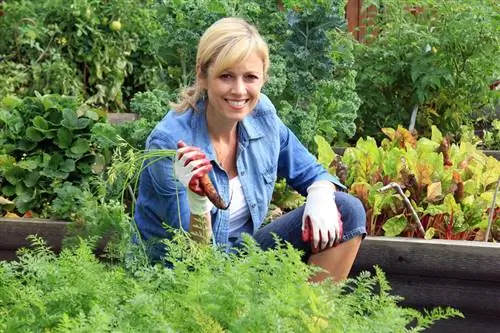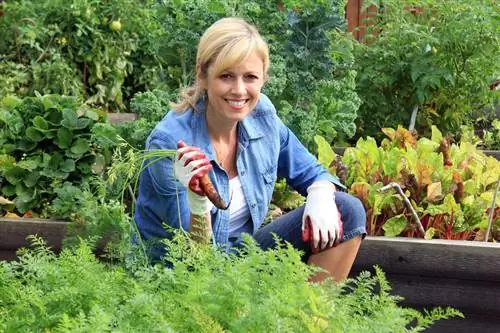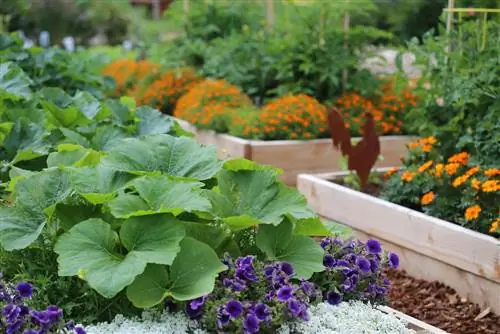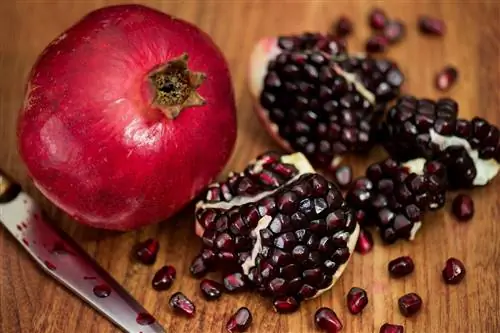- Author admin leonars@hobbygardeners.com.
- Public 2023-12-24 06:09.
- Last modified 2025-06-01 06:02.
No matter whether on the roof terrace, in the home garden, on the balcony or on other suitable areas - organic gardening is literally “growing” in popularity. Instead of relying on chemicals and using pesticides to get rid of “pesky insects”, organic gardening has become a real trend.

More than that: One can certainly speak of a real movement, because in today's society everyone wants to eat he althily and at the same time do something good for the environment. Here and there a flower pot in which a poor tomato plant was wilting - that's simply not enough anymore. Rather, people now strive to grow their own fruit, vegetables and herbs in order not only to change their daily menu, but to enrich it.
It's not always about the perfect size
Retailers are increasingly adapting to these individual customer needs. The fruit and vegetable products in most stores are mainly sold by local farmers. At the same time, however, retailers make sure that the appearance of the food from Mother Nature's womb is as perfect and “customer-oriented” as possible. So discerning connoisseurs can look forward to “tailor-made” products. Every cucumber, every tomato and every radish is “standard” even and - of course - has no flaws. But does the consumer really want that? Is it really his desire to buy tomatoes with a perfectly round shape? Does every radish really have to be as even as a ping pong ball? Not at all. When you consider how often pesticides are used to achieve “best results” or flawless natural products, this is truly worrying. This is precisely one of the fundamental reasons for the growing enthusiasm for organic gardening. The positive influences of so-called effective microorganisms have long been appreciated. For example, they help to consume and digest germs. Within a very short time, they break down harmful poisons and other compounds into their components so that they can no longer cause any harm.
Customer focus in local trade
Depending on the store, the regional products can be delivered directly to the customer's doorstep upon request. These and many other services actually make organic gardening unnecessary. Nevertheless, more and more consumers want to grow their own food. There are many reasons for this:
- organic gardening is extremely sustainable
- the quality of the products can be checked “on your own”
- Eating “organic” is fun
- organic gardening calms the conscience and relaxes
- Awareness of food can be increased through your own garden activity
There are many good reasons for organic gardening
Taking matters into your own hands, feeling more closely connected to nature - these and other reasons are prompting more and more people to grow fruit, vegetables and herbs in their own garden. What was initially just a trend has now become a real movement. You want to eat he althy and chemical-free. However, perfect curves or ideal dimensions are not required for fruit and vegetables. Furthermore, gardening simply puts you in a good mood, even though it sometimes requires a bit of work and physical exertion. But activities in the fresh air are also known to be he althy.






